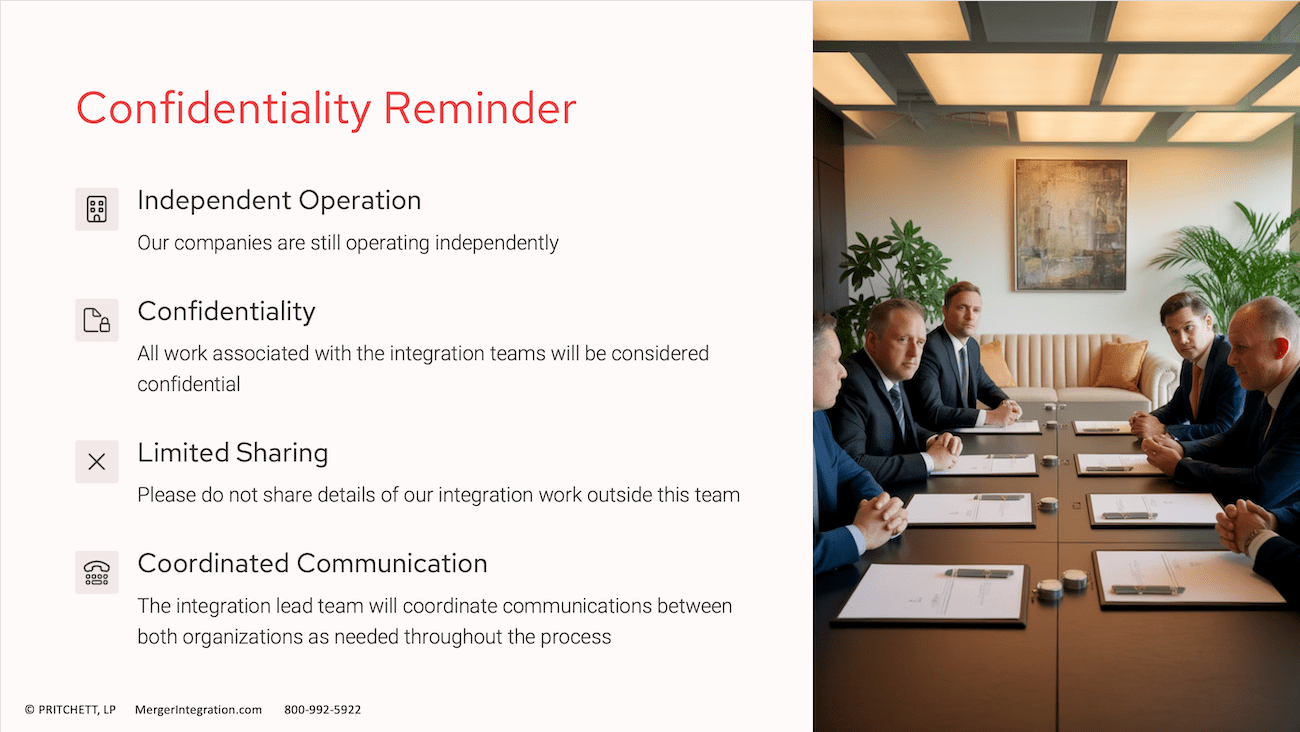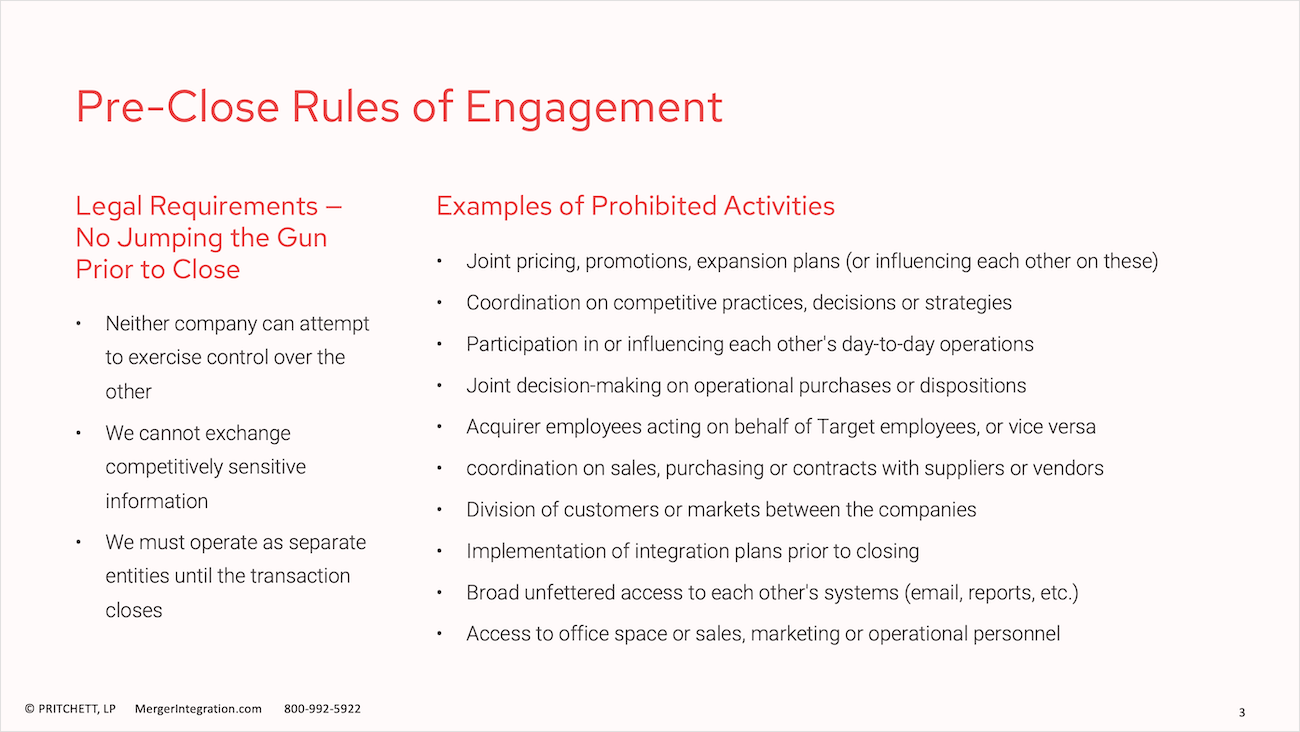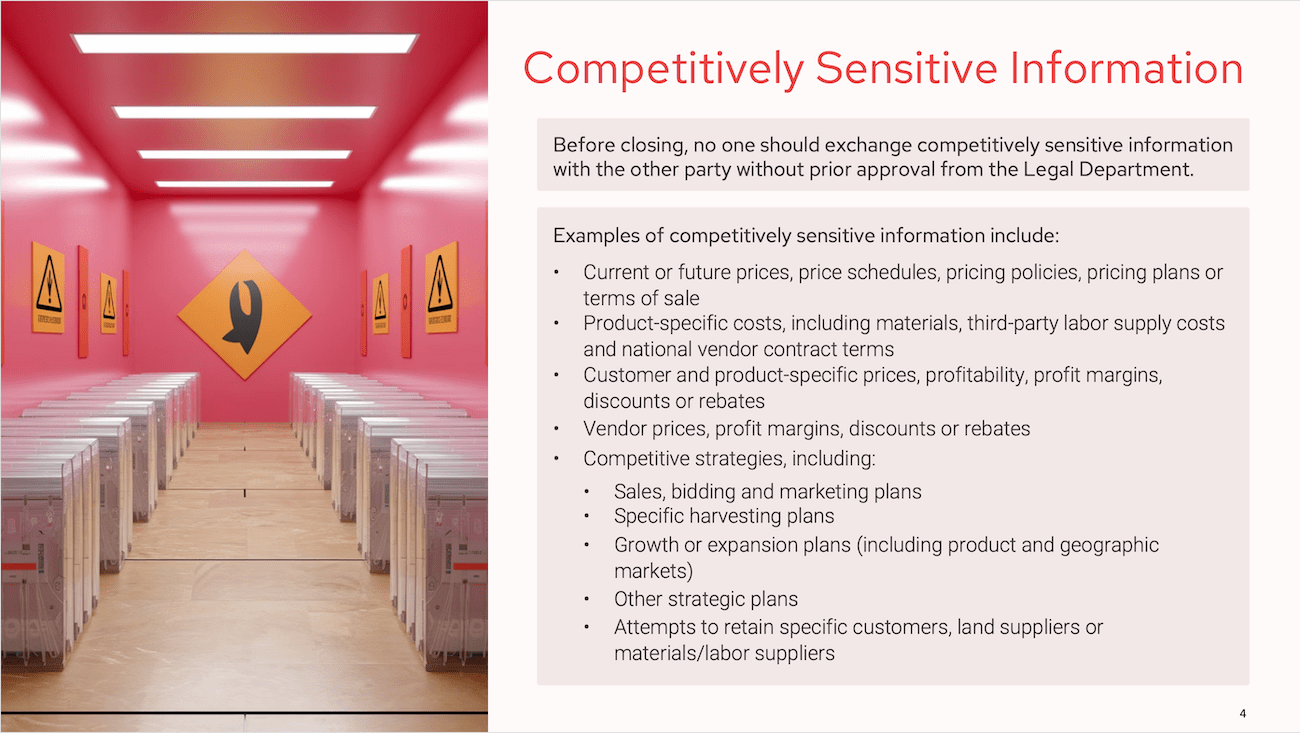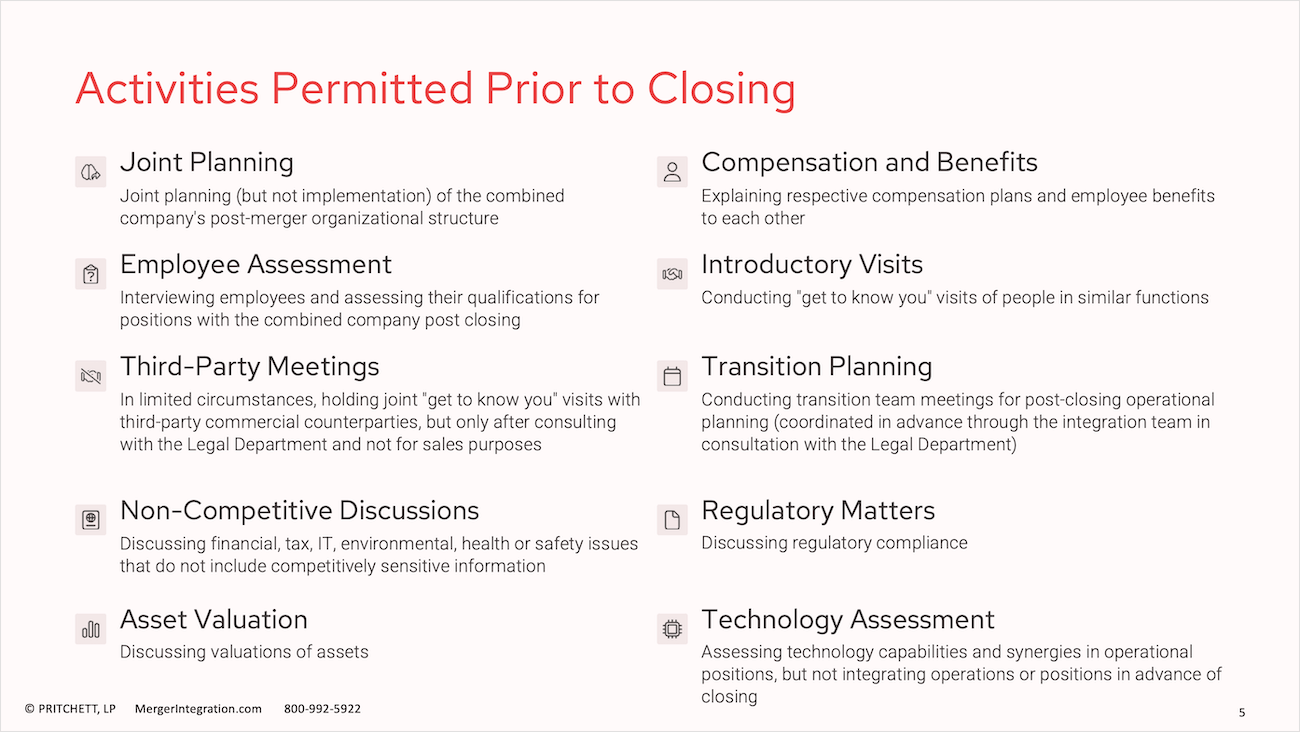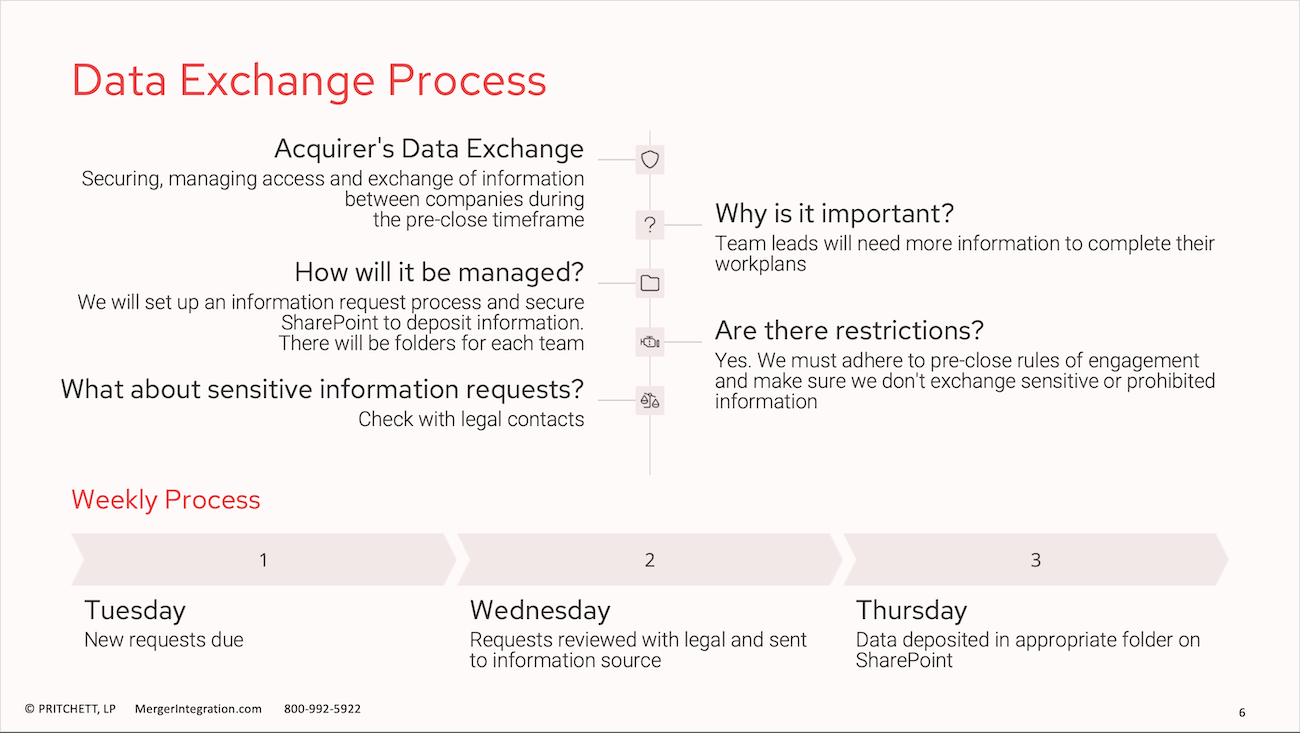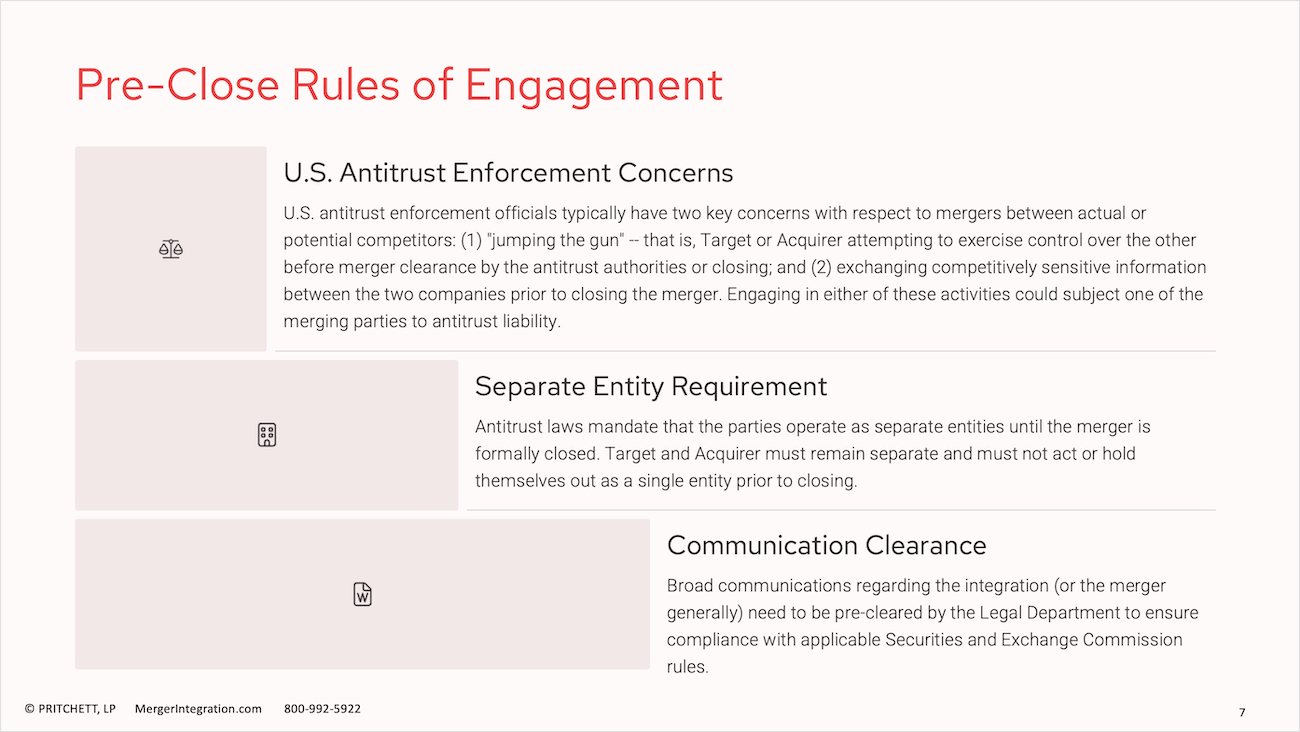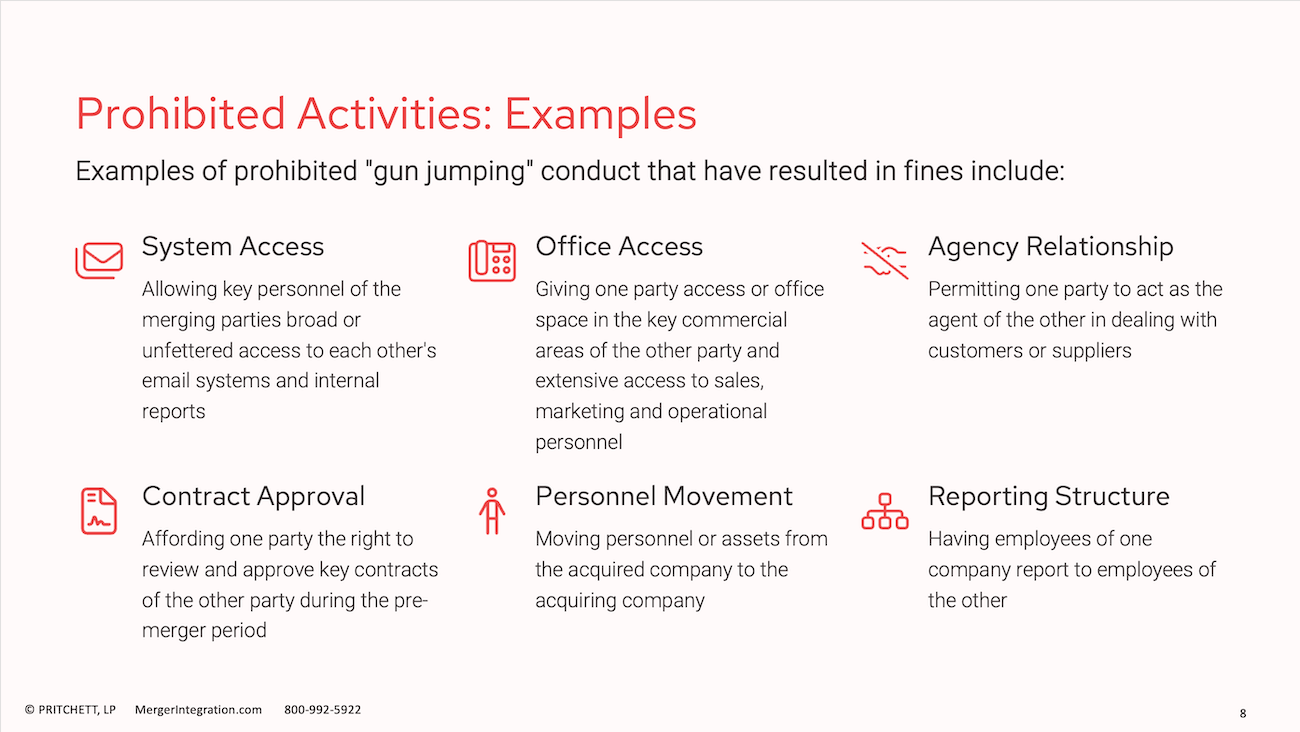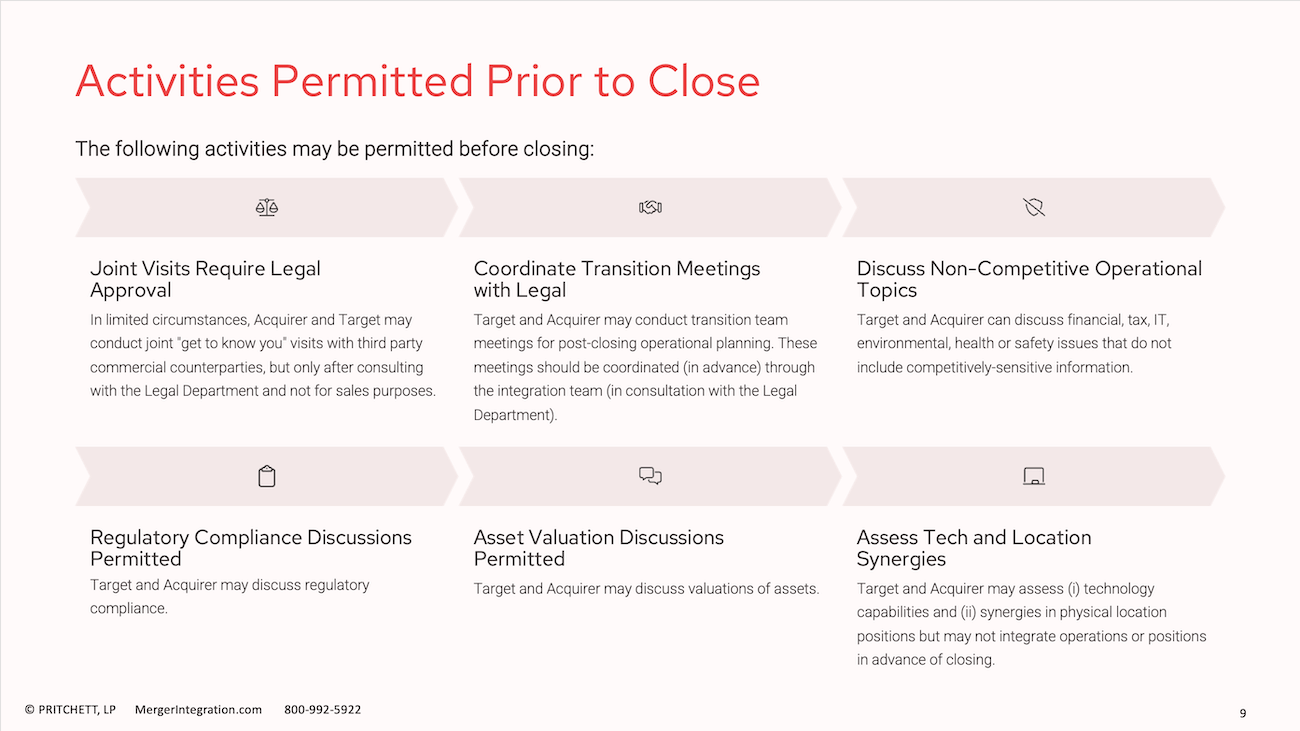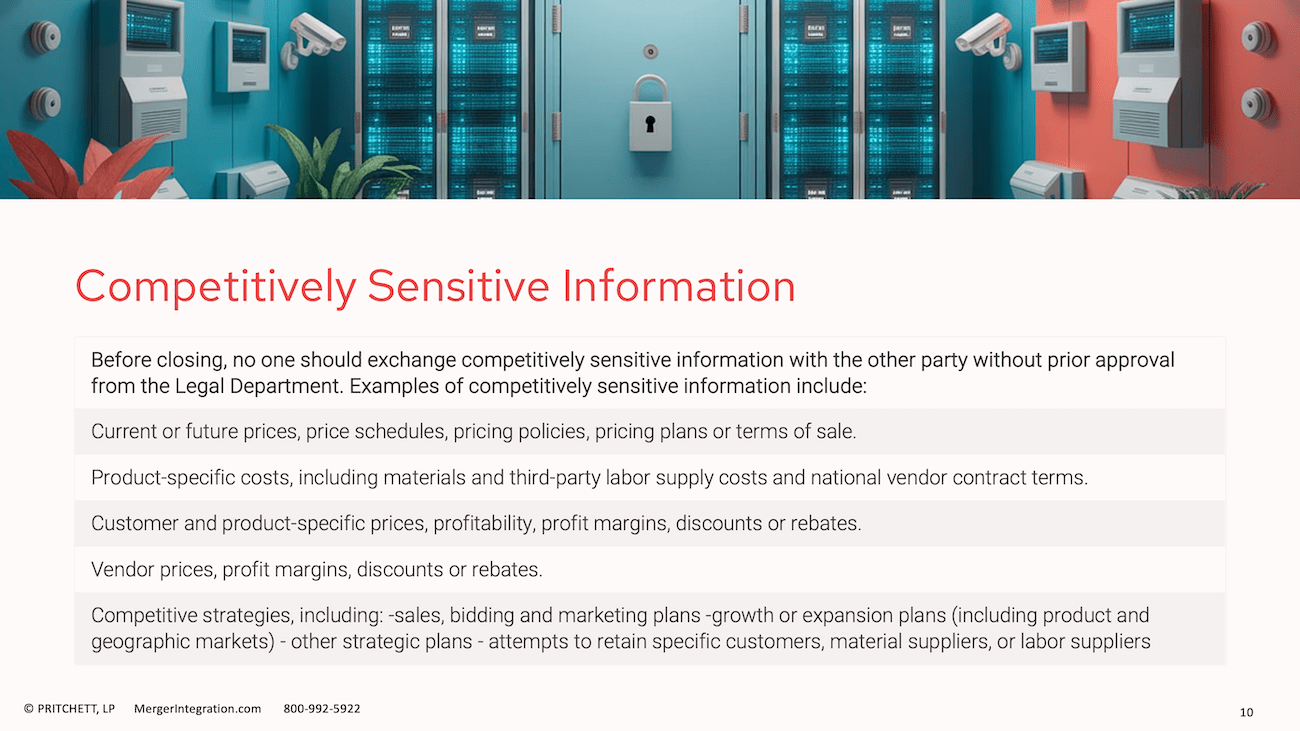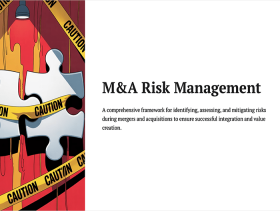Gun Jumping Rules in M&A
Legal Requirements for Deals Subject to Regulatory Approval — No Jumping the Gun Prior to Close
- Neither company can attempt to exercise control over the other
- We cannot exchange competitively sensitive information
- We must operate as separate entities until the transaction closes
Examples of Prohibited Activities:
- No joint pricing, promotions, expansion plans (or influencing each other on these)
- No coordination on competitive practices, decisions or strategies
- Can’t participate in or influence each other’s day-to-day operations
- No joint decision-making on operational purchases or dispositions
- Acquirer employees cannot act on behalf of Target employees, nor vice versa
- No coordination on sales, purchasing or contracts with suppliers or vendors
- No division of customers or markets between the companies
- No implementation of integration plans prior to closing
- No broad unfettered access to each other’s systems (email, reports, etc)
- No access to office space or sales, marketing or operational personnel
Competitively Sensitive Information:
Before closing, an acquirer should not exchange competitively sensitive information with the other party. Examples of competitively sensitive information include:
- Current or future prices, price schedules, pricing policies, pricing plans or terms of sale
- Product-specific costs, including materials and third-party labor supply costs and national vendor contract terms
- Customer and product-specific prices, profitability, profit margins, discounts or rebates
- Vendor prices, profit margins, discounts or rebates
- Competitive strategies, including:
- Sales, bidding and marketing plans
- Specific harvesting plans
- Growth or expansion plans (including product and geographic markets)
- Other strategic plans
- Attempts to retain specific customers, land suppliers or materials/labor suppliers...
Activities Permitted Prior To Closing
The following activities may be permitted before closing:
- Joint planning (but not implementation) of the combined company’s post-merger organizational structure
- Explaining respective compensation plans and employee benefits to each other
- Interviewing employees and assessing their qualifications for positions with the combined company post closing
- Conducting “get to know you” visits of people in similar functions
- In limited circumstances, holding joint “get to know you” visits with third-party commercial counterparties, but only after consulting with the Legal Department and not for sales purposes
- Conducting transition team meetings for post-closing operational planning (coordinated in advance through the integration team in consultation with the Legal Department)
- Discussing financial, tax, IT, environmental, health or safety issues that do not include competitively sensitive information
- Discussing regulatory compliance
- Discussing valuations of assets
- Assessing technology capabilities and synergies in operational positions, but not integrating operations or positions in advance of closing


